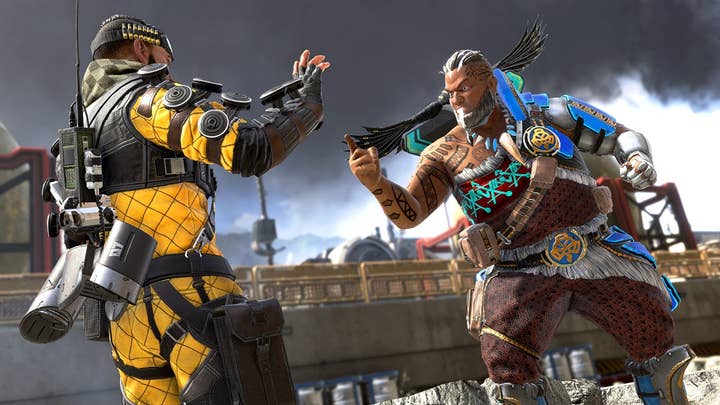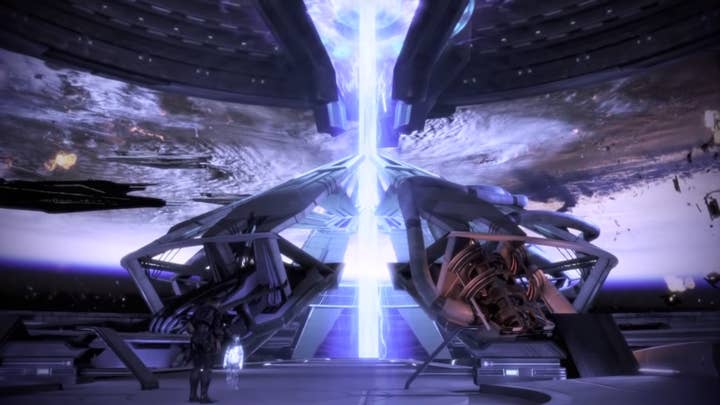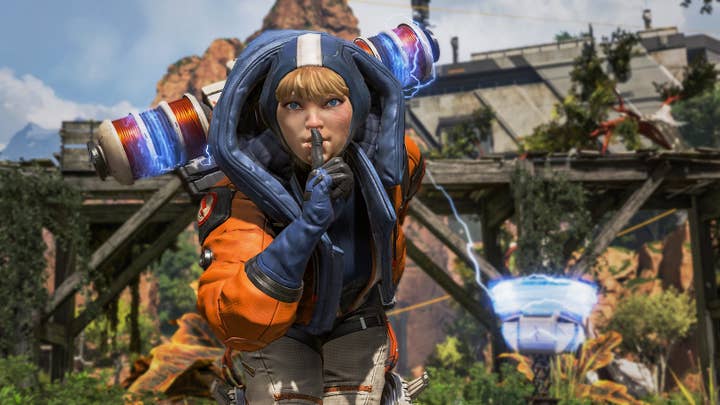Respawn at the Apex of community dysfunction | Opinion
Fans and developers say they want an open, transparent relationship with each other, but their actions suggest anything but
Earlier this year, a developer admitted to me that they were afraid of their fans, but they could never express that fear it in public because simply doing so would make them a target for abuse.
I was reminded of that developer's admission this weekend as I saw an Apex Legends community controversy unfold. In short, Respawn Entertainment was too aggressive with monetization for some of its players' liking, some players got nasty, and some developers called them out on their bad behavior.
That happens in games today. It's depressing, it's common, and it's arguably not newsworthy. Then Respawn CEO Vince Zampella released a statement on the entire sad affair:
"Some of our folks crossed a line with their comments, and that's not how we want Respawn to be represented. I apologize to any of our fans that were offended. I will always stand behind the team here at Respawn and support them on speaking out against some of the toxic and nasty comments being directed at them, including everything from death threats to comments aimed at their families and loved ones. But we shouldn't contribute to it when we comment, and add to the very thing we want to prevent.
"We need to lead by example. Last week we didn't do that, and going forward we will be better. Having an open, healthy relationship with our community is incredibly important to all of us at Respawn."

It's a confusing statement, to say the least. Zampella starts out saying the developers crossed a line and apologizing to offended fans. He then insists he has his employees' backs when they speak out against toxicity, even though he literally just got done throwing some of them under a bus for being mouthy.
Zampella's statement also buries the lead. Somehow, his employees having death threats aimed at them (and their families!) is not the serious violation of the consumer-creator relationship that has prompted this note. It is merely additional background context to the real news, which is a developer daring to respond to abusive fans with anything except complete subservience.
"I've been silent for over half a decade and the culture hasn't changed"
Apex Legends producer Tina Sanchez on ignoring online abuse
Finally, Zampella suggested that responding as the Respawn developers did adds to the very thing they want to prevent, which is wrong for a couple reasons. First, it equates bluntly calling out horrible behavior with the behavior itself, which again, included death threats. Second, it completely ignores about a decade's worth of evidence that developers responding to abuse from the fanbase with "Thank you sir, may I have another" has not only failed to stop this behavior from happening, but it appears to be growing in frequency and severity over time.
Apex Legends producer Tina Sanchez provided a retort to Zampella's line of thinking on Twitter before he'd even released his statement, when she took exception to a Polygon article about the community uproar.
"Can you write an article now about how I've been completely silent since 2013 with all the death threats and harassment," Sanchez asked. "Just look up my twitter handle and any cuss word for content."
When another Twitter user said receiving unjustified abuse doesn't justify reflecting negativity back at the abusers, Sanchez responded, "I don't agree. I've been silent for over half a decade and the culture hasn't changed."
That's what I keep coming back to here. The culture hasn't changed. It's the circumstances surrounding the culture that are different now.
The internet has made direct communication between developers and the audience easier. Free platforms -- whether social media or games without up-front purchase prices -- have made it trivial for bad actors to continuously return to communities even after being banned, a problem aggravated by a short-sighted reluctance from developers to ban players for bad behavior. Combine that with an upstart influencer media thirsty for high-engagement outrage fodder and a traditional press dealing with both the usual pressures for traffic and existential worries about its continuing relevance and you've got an ecosystem that can take trivial grievances from a fraction of a game's player base and help amplify them to pitchfork-wielding mobs in a heartbeat.
But none of that is the fundamental reason why this is happening. That's just why it's happening so fast.
The passion from these fans is real, but the relationship between them and the studio is still commercial in nature
I believe the actual reason this is all happening has been around a while as a fundamental part of the way we build our communities. It's why BioWare, Blizzard, and Bungie spent much of the 2000s as the gold standard for developers building devoted, passionate followings, and have spent much of the past decade as poster children for the increasingly dysfunctional relationship between developers and fans. Whether it's the ending of Mass Effect 3, Mass Effect: Andromeda, Anthem, Diablo III's original art direction, Diablo III's auction house, Diablo: Immortal for mobile, or basically the entirety of the Destiny franchise (Is it loathed or loved by players this week? I can't keep up), these studios have seen what happens when their passionate fanbases don't like something the company has done.

And that's the thing. The passion from these fans is real. The way they value these games and the people they play with can be wonderful and healthy and heart-warming. But the relationship between the player and the studio is still commercial in nature. It's a customer and a company. When you introduce emotional investment into that -- when one party believes the relationship is based on a shared passion and the other (necessarily) bases it on money -- it's no wonder that could turn ugly in a hurry.
And for quite a long time, that dysfunctional relationship worked in the developers' favor. Developers could foster passion and fierce loyalty without needing to reciprocate. But over time, consumers have realized how to turn the dysfunction to their own favor. After all, you can only jerk around a friend or lover so far before they up and leave.
But a business that subscribes to the idea that the customer is always right? They tend to put up with a lot more, and when you're making a very loud, uncomfortable scene at the customer service desk, you're not necessarily banking on your righteous stance to get your way; you're betting that they'll eventually give you whatever you want just to get you to stop screaming and get you out of the store. And when you're not just trying to badger a store into price matching a sale they shouldn't but are genuinely emotionally invested in the fight, you're probably willing to stick with it longer and take things further.
There are ways to make sure nobody is screaming in the present that will make things worse in the future, like a technical debt for player behavior
Caving to an angry consumer to make them go away might be good customer service in the brick-and-mortar world, but it's poisonous in an online world that has become numb to extreme behavior and makes it so easy to not just cause a scene but get others to join in.
In games, good community management is not simply "nobody's screaming." There are ways to make sure nobody is screaming in the present that will make things worse in the future, like a technical debt for player behavior. Because whether you're dealing with toddlers or tyrants, appeasement only invites further transgressions.
Of course, only some players are giant entitled babies / DLC-purchasing despots. But all too often, a much larger group of players provides useful cover, more horrified at a developer daring to talk back to their consumer kings without proper courtesy than at their fellow players for wishing death on a person and/or their loved ones over the pricing of in-game cosmetics. And Zampella, by centering his comment not on the inexcusable abuse his employees receive but on chastising them for the (again, very human) way they handled it, is providing more cover still.
In his statement, Zampella insisted "having an open, healthy relationship with our community" is important to the studio, but it's clear that's not what he wants. His employees were open about their frustrations, after all, and healthy relationships have some push back. They have people recognizing when they've wronged each other, and trying to do better. They have discussions about what's acceptable and what isn't, where the lines should be drawn.
Like most studios, Respawn doesn't actually want that. It wants the same dysfunctional relationship with its players that the biggest studios have had for years. It wants all the dynamics of that relationship that work in its favor and none of the ones that don't.
It's just a company, standing in front of millions of customers, asking them to love it.

